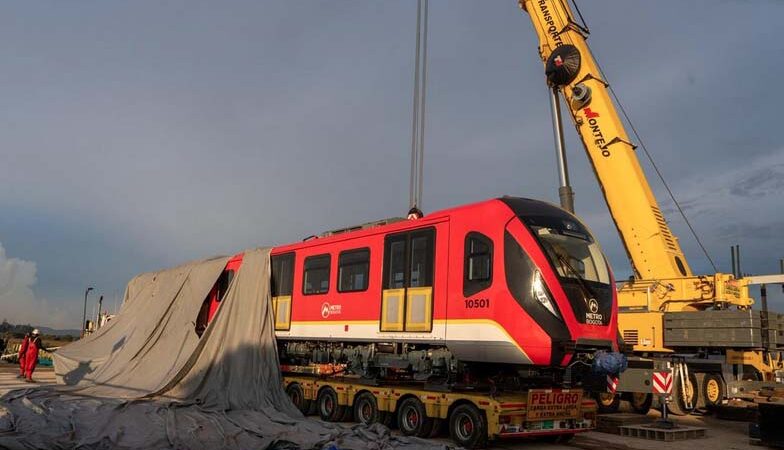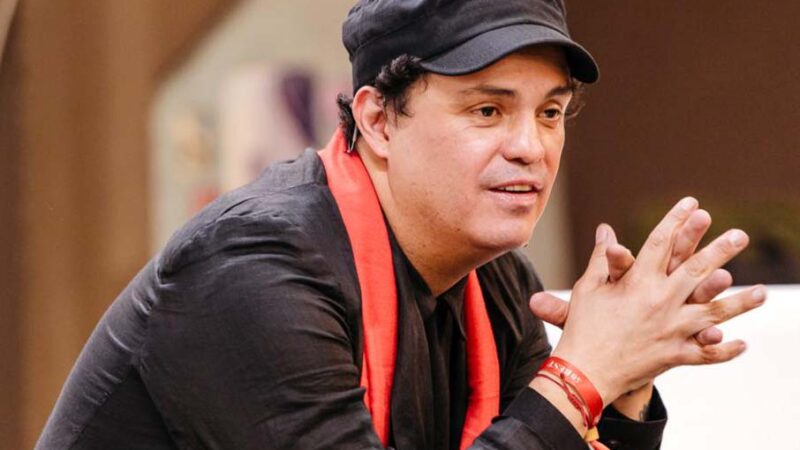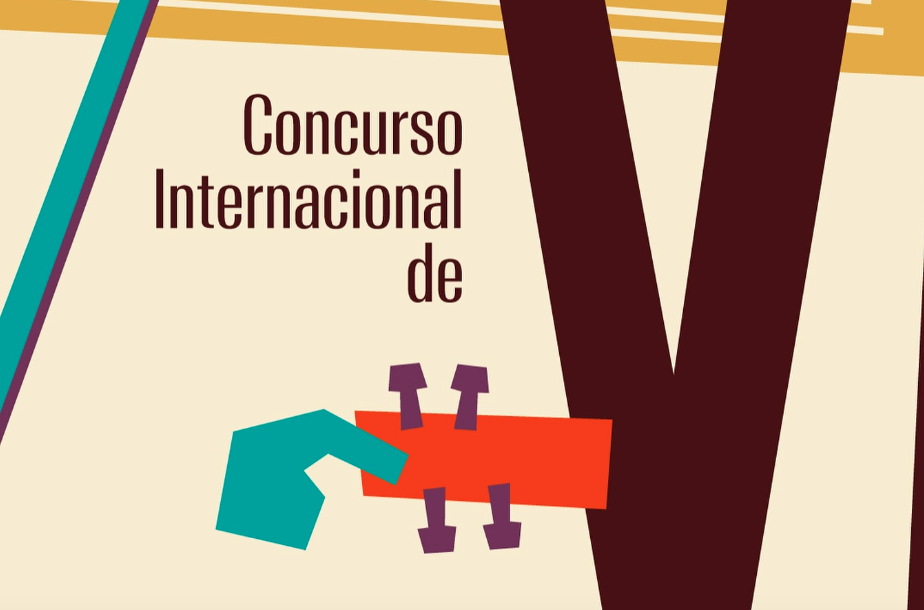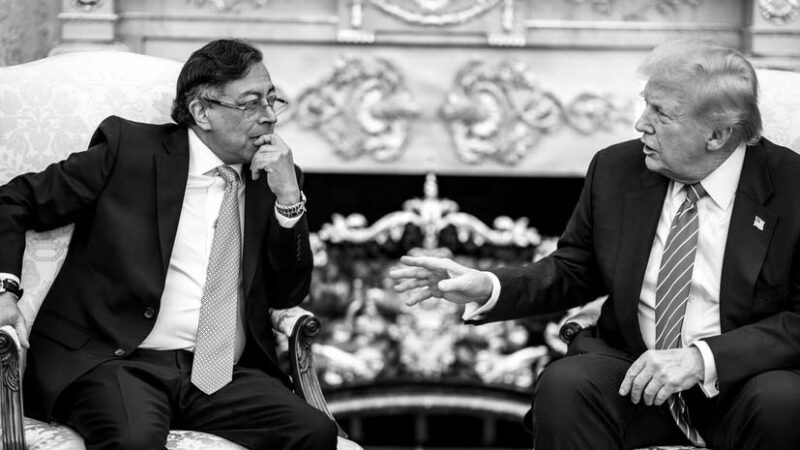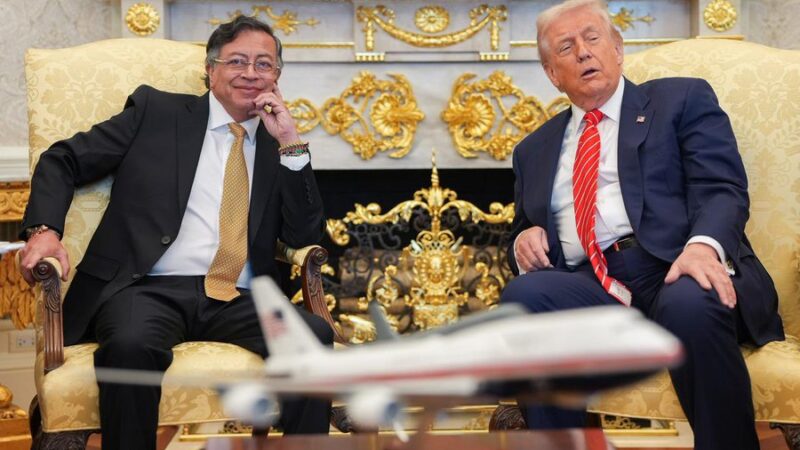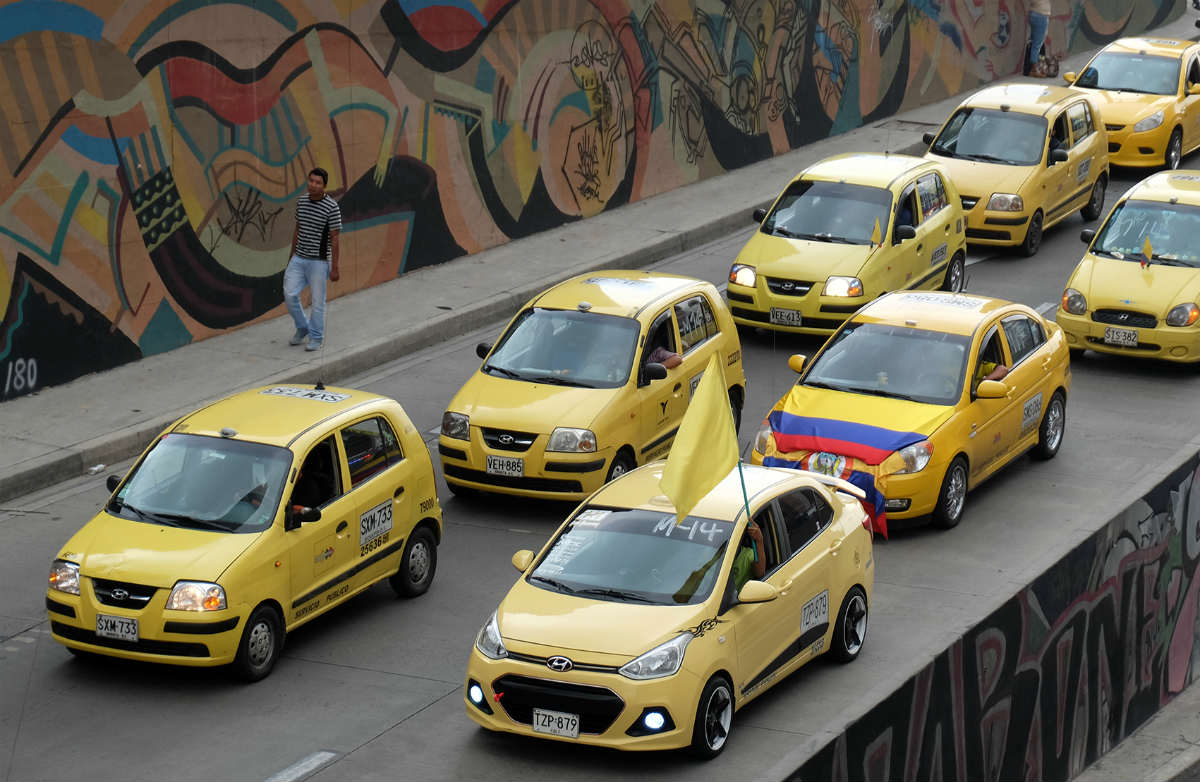
[dropcap]I[/dropcap]t was a small, yet vociferous protest by some 600 Bogotá taxis as they meandered the streets of the Colombian capital city Monday. The representatives from dozens of different Bogotá cab operators called for strike action in protest of the government’s relatively lax stance on Uber and similar services.
The strike known as M14 saw major avenues invaded by streams of slow moving yellow cabs, many decked with the Colombian tri-color flag. The caravan ended at the Plaza de Bolívar midday in the heart of Bogotá and a few blocks from the Presidential Palace.
Similar protests unfolded in the country’s other major cities.
While tensions have occasionally flared between taxis and Uber drivers, including last month when taxi drivers allegedly attacked an Uber vehicle in Bogotá carrying the daughter of a former vice president.
Monday’s protest unfolded relatively peacefully, with 177 photo fines handed-out to cabs which blocked main intersections.
A handful of taxi drivers were arrested for forcing passengers out of taxis and other illegal infractions, and a dozen vehicles impounded. At least one Uber driver’s vehicle was apparently damaged.
Nonetheless, police and ESMAD riot police monitored key intersections such as the Calle 26 with Cra 13, Calle 72 with Caracas and TransMilenio stations, helping keep the city’s red and blue public buses running as smoothly as possible.
Uber is not technically legal in Colombia, although the government has said that they are working on a plan that could involve compromises to allow the ridesharing service to operate within the law.
Earlier this month, Colombian officials fined Uber roughly $140,000 USD for violating transportation regulations.
In November, new rules allowed the creation of a so-called “luxury taxi” designation that would allow taxi companies to provide services similar to those of Uber. Those regulations are expected to take effect later this year.
But many taxi drivers, including the head of Bogotá’s taxi guild remain unsatisfied by the government’s efforts to crack down on Uber drivers breaking the law.
“One of the grievances with Uber is that they don’t play by the rules,” said Jairo Muñoz, a former petroleum engineer who has worked as a taxi driver in Bogotá for more than a decade.
“They have thousands of cars registered in municipalities outside of Bogotá in order to evade the mobility fees required for transporting passengers. This type of competition undermines the legitimate work we are trying to do,” he said.
The Ministry of Transport announced Monday that it would reveal the reglamentation of the Uber service within the next two weeks.
Taxi guild leader Hugo Ospina warned in November that some drivers had grown so disgruntled that they were “arming themselves to assassinate Uber drivers.”
Other taxi drivers protested the protest by staying off the streets for the day.
The ridesharing service first started operating in Bogotá in 2013 and now serves 11 cities in Colombia.
Share this story
Ed Buckley
Ed Buckley started working with The City Paper in July of 2011 and now runs the paper's website in addition to helping with writing and editing. Ed is originally from Charleston, South Carolina.




